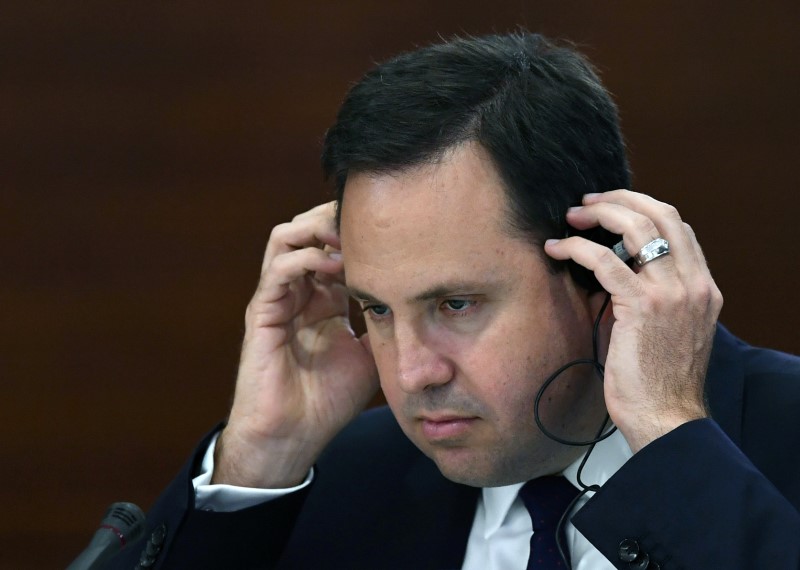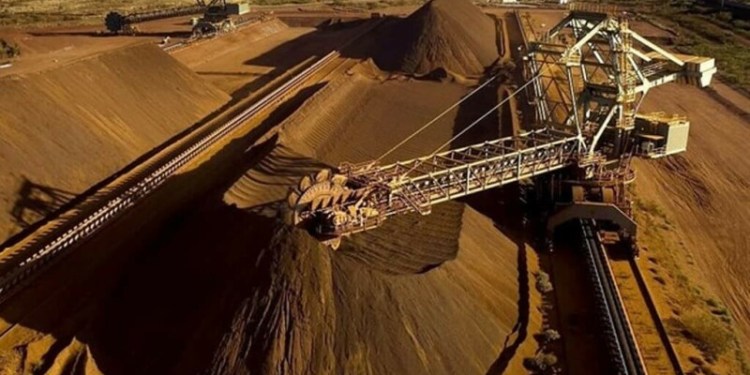 © Reuters. FILE PHOTO: Australia’s Minister for Trade, Tourism and Investment Steven Ciobo listens during APEC MRT 23 in Hanoi
© Reuters. FILE PHOTO: Australia’s Minister for Trade, Tourism and Investment Steven Ciobo listens during APEC MRT 23 in HanoiBy Colin Packham
SYDNEY (Reuters) – Australia’s trade minister will use a visit to China this week to reinforce ties with his country’s largest trading partner, he said on Wednesday, following a recent souring in relations.
Steven Ciobo’s arrival in Shanghai on Thursday marks the first trip by an Australian minister in eight months, part of Canberra’s effort to protect access to a market for everything from iron ore to baby formula, analysts said.
“I am not going to paper over the fact that in the past several months the focus has been on the differences,” Ciobo told the Australian Broadcasting Corporation (ABC) in a radio interview.
“I will be ensuring our relationship with China is afforded the priority it deserves.”
Ciobo will hold talks with Chinese officials during his three-day visit.
Relations between Australia and China have been tested just two years into a free trade pact after Australian concerns about Chinese influence spurred legislation banning foreign political donations.
China responded with a formal protest and reportedly withheld visas for Australian government officials, jeopardizing a biennial trade fair, sparking fears the row could escalate and further threaten ties.
Officials of both sides are working to reschedule the trade show, though a source familiar with the discussions said that may not happen.
Ciobo, the last Australian minister to visit China in September 2017, said he would also attend Asia’s largest food and beverage exhibition, SIAL China.
China bought A$93 billion ($69.57 billion) of Australian goods and services last year, underpinning corporate heavyweights such as miners Rio Tinto (L:) (AX:) and BHP Billiton (AX:).
Smaller firms, such as food and beverage maker Bellamy’s Australia (AX:), have also profited from its rising demand.
Trade ties are just one aspect of a delicate balancing act for Australia, whose security ties with the United States have limited the closeness of relations with China, analysts said.
China’s construction of islands and military facilities in the South China Sea, through which some $3 trillion in trade passes annually, has fed concern it seeks to curb free movement and extend its strategic reach.
Relations began to sour in November when Prime Minister Malcolm Turnbull, citing “disturbing reports about Chinese influence”, proposed to register lobbyists working for foreign countries. Legislation is set to go to parliament in weeks.
Australian businesses trading with China warn against anti-China sentiment, and analysts say the government appears to be tempering its tone.
“People could lose jobs if Chinese tourists stop coming,” said Nick Bisley, an expert on international relations at Melbourne’s La Trobe University.
“Farmers could go broke if China stops buying agricultural goods, and the government is aware of this. This is why they haven’t continued with the language we saw in 2017.”
($1=1.3367 Australian dollars)
Fusion Media or anyone involved with Fusion Media will not accept any liability for loss or damage as a result of reliance on the information including data, quotes, charts and buy/sell signals contained within this website. Please be fully informed regarding the risks and costs associated with trading the financial markets, it is one of the riskiest investment forms possible.
Source: Investing.com




























